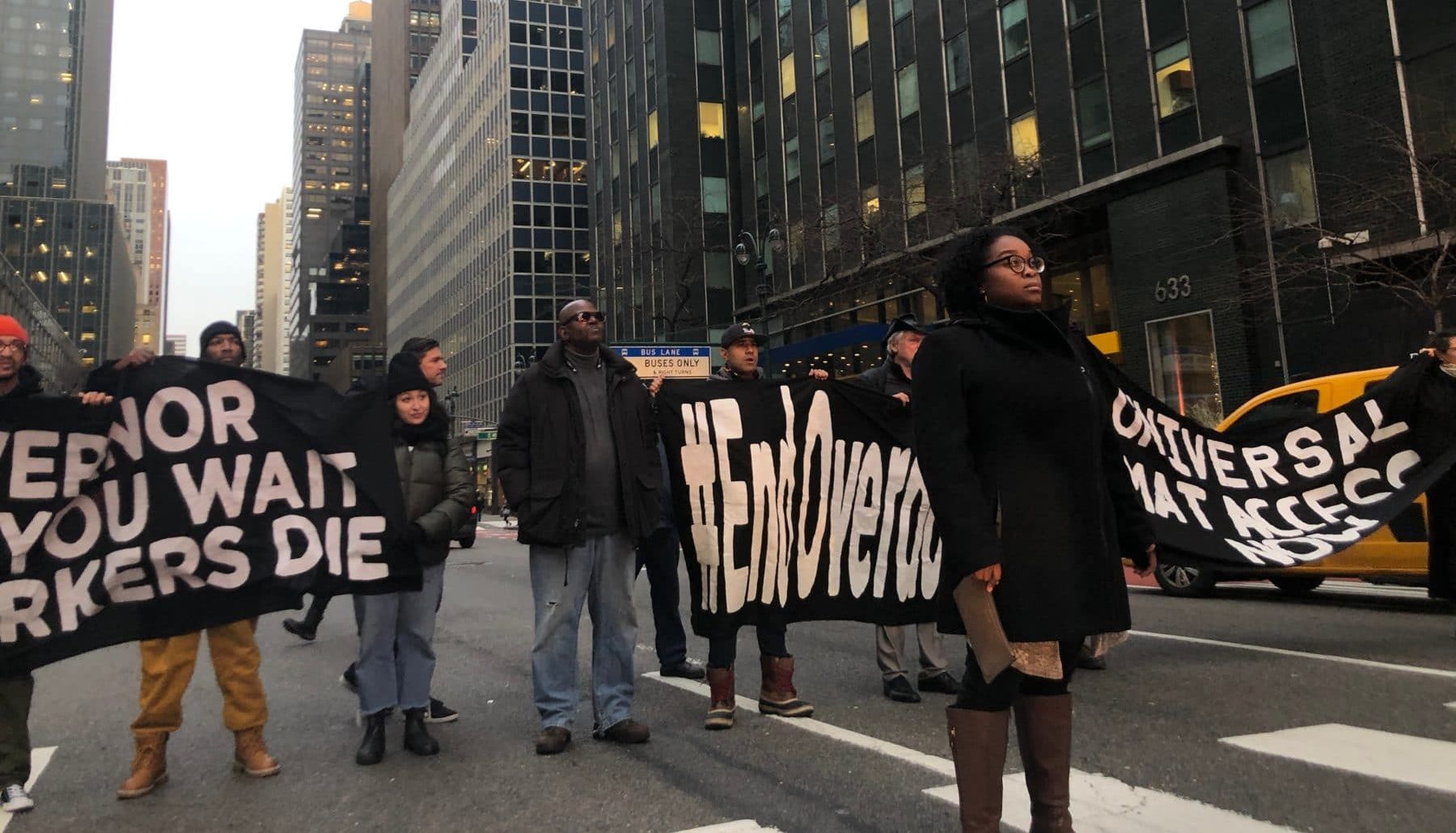Late on January 1, Governor Andrew Cuomo issued a last-minute veto on a bill that would have ended barriers for low-income New Yorkers to access Medicaid-insured medication-assisted treatment (MAT)—with the potential to save hundreds of lives and millions of dollars every year. At the same time, he signed into law a version of the bill that ended MAT’s pre-authorization for private insurance.
The vetoed bill (S5935/A7246) would have removed the requirement of Medicaid’s pre-authorization for a doctor to prescribe opioid substitution therapies like buprenorphine. According to a Legal Action Center report, it would have saved nearly 600 lives and $51.9 million in state dollars annually, and and reduced inpatient admissions and emergency department visits for the impacted population by 42 percent.
Activists had been campaigning for months over Cuomo’s stalling on the bill. His actions were exactly what they feared, as VOCAL-NY’s Drug Policy Coordinator Jasmine Budnella explained to Filter in October: The governor waited until the holidays hit, minimizing attention from activists, journalists and the public. He vetoed the bill at 10:50 pm on January 1.
“The only thing we can come up with is that you don’t believe poor people’s lives matter.”
On January 2, organizations including VOCAL-NY and Drug Policy Alliance staged an emergency action in response. Activists occupied 3rd Avenue in Manhattan outside of the governor’s office, bringing traffic to a stop, until New York Police Department officers threatened them with arrest, at which point they moved onto the sidewalk.
activists from @DrugPolicyOrg and @VOCALNewYork are occupying 3rd ave in response to @NYGovCuomo’s veto of a bill that would have ended a major barrier for Medicaid recipients to access lifesaving opioid substitution therapies pic.twitter.com/B9ufgAj7tC
— sessi kuwabara blanchard (@SessiBlanchard) January 2, 2020
“We’re here today because Governor Cuomo continues to deny access to New Yorkers struggling with addiction,” said Kassandra Frederique, managing director of policy, advocacy and campaigns for the Drug Policy Alliance. Noting the governor’s end to prior authorization for private insurance, but not Medicaid, she concluded: “The only thing we can come up with is that you don’t believe poor people’s lives matter.”
One onlooker at the protest agreed with Frederique. “I think it’s wrong,” said Albert, a worker at an insurance company who told Filter that some in his family have struggled with addiction and died of related causes.
“Wealthy people seem to get more treatment options,” he said. “They get to go stay at an inpatient treatment center, while poor people are criminalized. That’s the problem I have with it. And most of them are more minorities, like Black and Latino people, and transgender people, poor people and people who are ‘outcasts’ of society.”
As activists raise concerns about the governor’s move to privilege MAT access for private insurance, Gov. Cuomo justified his veto by claiming that private business would be benefiting the most from the Medicaid-related bill. In a memo, Cuomo wrote that eliminating prior authorization for Medicaid would offer an “unfair competitive advantage to one pharmaceutical manufacturer in particular.” Apparent concerns about diversion of methadone, which he characterized as potentially “caus[ing] significant harm to the people the drugs are intended to help,” also influenced his decision.
Activists previously told Filter that they believed the prospect of short-term costs rising—despite the large savings projected for the longer term—was a key factor for Cuomo.
The bill has been at the center of what Budnella considered to be a needless “full-out war” over health justice for low-income people who use drugs. “Signing this bipartisan bill would have been an effortless feat for the Governor as families impacted by the crisis, people who are at risk of overdose, people in recovery, service providers and the medical community have relentlessly and overwhelming voiced their support,” said Budnella in a January 2 statement. “Yet, his incessant rejection of evidence-based policies is a sign he is comfortable with perpetually keeping New York behind national trends, creating a system where poor/low-income New Yorkers get less access to treatment, and is complacent with the mass deaths of thousands across our state.”
“In a moment in history where bipartisanship is an anomaly, Governor Cuomo’s actions are proof he is neither a progressive or a leader, and his governance is dangerous and built on falsehoods,” said Budnella. Cuomo signaled in his memo that he may effectively end Medicaid prior authorization in his upcoming executive budget, though he has stalled on shuttling progressive drug policies through the budget in the past.
“We are not fooled,” said Budnella, “and will not stop fighting until we end overdose in New York State.”
Photograph of activists occupying 3rd Avenue in Manhattan on January 2 by Filter.





Show Comments